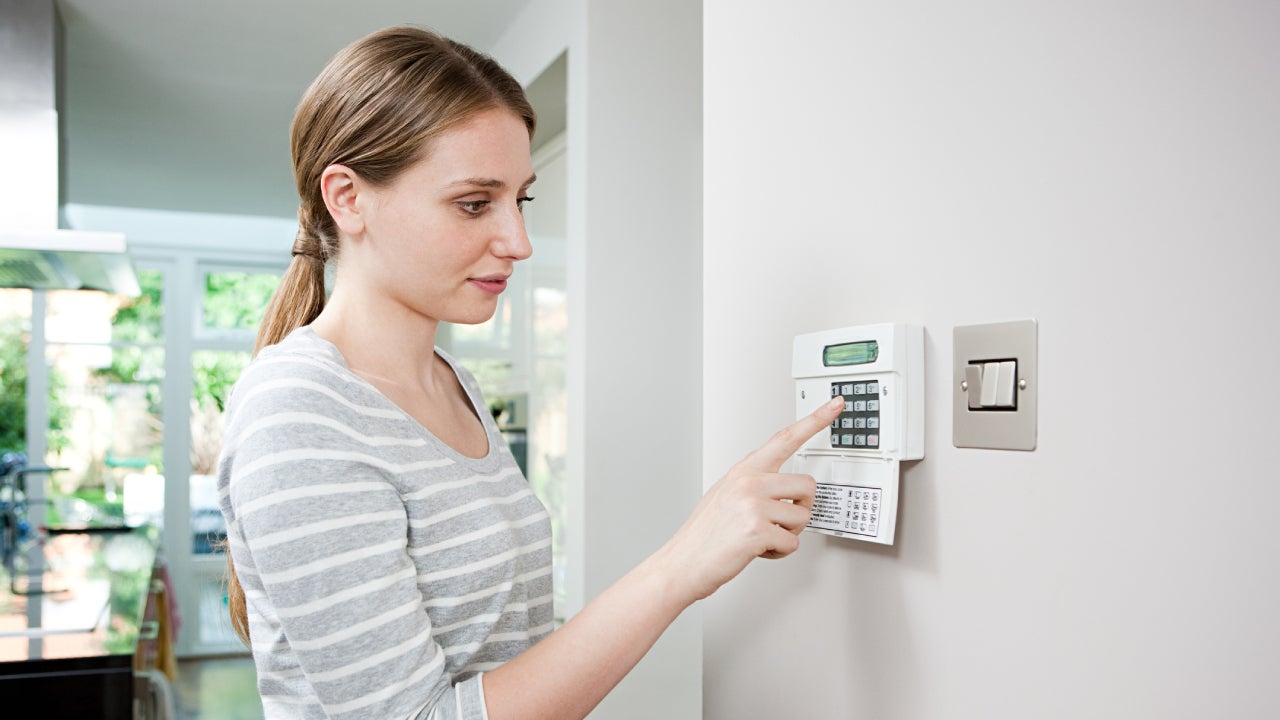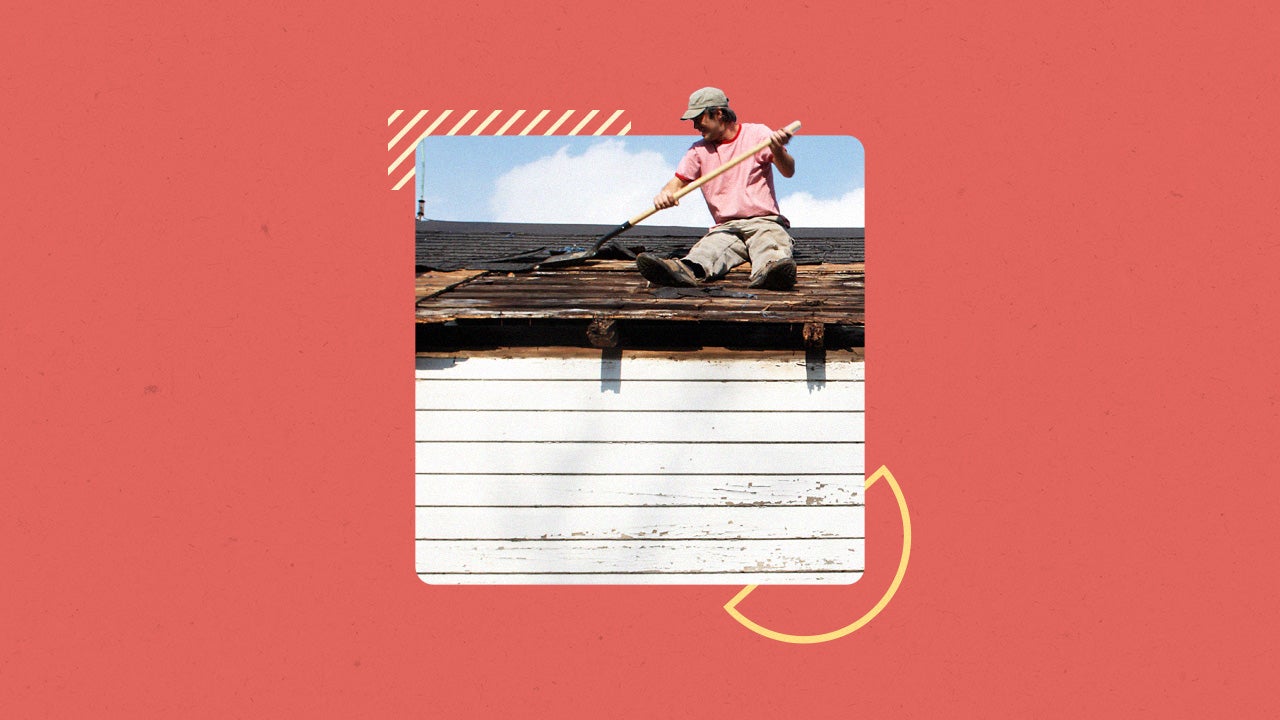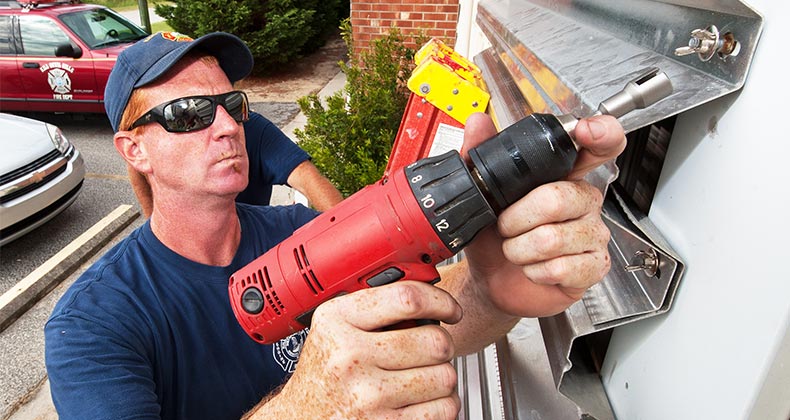How to prioritize home repair costs

A home is the biggest purchase most people make in their lives, and it’s common for new homeowners to be cash-strapped for a while after moving. Sometimes, though, repairs and renovations can’t wait — and unfortunately, these surprise or emergency projects are often the costliest ones. With that in mind, here are some strategies to help new homeowners assess the urgency of projects, how to prioritize them, and how to finance necessary home repairs even when money is tight.
Use your home inspection as a repair guide
During the height of the pandemic real estate frenzy in 2020 and 2021, many buyers waived inspection contingencies in their offers — that is, the right to inspect the property before closing. Now that things are calming down slightly, home inspections are becoming common again. Understanding an inspector’s report can be a huge help in anticipating maintenance needs and potential problems.
“Knowing these details about the home you’re going to own is crucial,” says Ari Rasekh, co-founder of Manor, an app that helps homeowners keep track of their home maintenance and connect with service professionals and contractors.
“A good inspector will pick up on things that sounded insignificant at the time,” Rasekh says. “Passing remarks like ‘your boiler is 30 years old. It looks like it’s operating but it’s 30 years old,’” can be clues to projects that will need attention — sooner rather than later.
Rasekh says keeping your inspection report handy and reviewing it occasionally after you move in is a good idea, because then you’ll be able to better anticipate and budget for necessary home repairs.
Understand what’s urgent vs. what can wait
Not all home repairs are created equal, and some are definitely more time-sensitive than others. A door coming off its hinges or a broken window may be inconvenient and ugly. But a dripping pipe, while less unsightly, might require more immediate intervention.
When check-listing items, focus on “the systems and appliances that keep your home running smoothly. It’s best to address issues quickly and proactively so small issues like a leaking pipe don’t turn into larger issues, like major damage to your floors,” says Raj Midha, senior vice president and general manager of warranty company American Home Shield.
Thinking about building home equity can also be a good metric for prioritizing repairs, Rasekh suggests. “Looking at the potential financial gain for any particular item,” Rasekh says. “Keep an eye on the trends and the data of what people are actually doing and using.”
However, as Midha notes, “while it may be rewarding to make superficial upgrades like painting walls, refacing cabinets or replacing countertops, these cosmetic projects can typically wait, and can sometimes be completed as a DIY project.”
It’s also important to consider any risks to your health and safety. Even little things like a smoke detector that’s out of order should be addressed promptly.
Consider DIY for certain home repairs
Unless you’re wealthy enough to have household staff, as a homeowner, you will definitely be doing your own repairs at some point. It’s important to be realistic about what you should and shouldn’t tackle. “As a general rule of the road, anything involving repairs to major plumbing, electrical, heating or air conditioning systems should be handled by a qualified licensed professional. In these cases, incorrect repairs can be dangerous and lead to further damage,” Midha says.
However, you may also be able to do smaller, less technical home repairs yourself — a great way to save money on home maintenance. “Examples of simpler DIY projects may include replacing the air filter in your HVAC system, clearing a minor sink clog or updating paint,” Midha says.
| Address ASAP | Can wait |
|---|---|
| Leaking/damaged roof | Peeling paint |
| Dripping/leaking water pipes | Old appliances |
| Septic tank issues | Outdated finishes |
| Faulty wiring | Stiff, drafty or cracked windows |
| Inoperable smoke/carbon monoxide detector | Sagging/warped doors |
| Malfunctioning boiler, furnace or AC system | Squeaky hinges/floorboards |
| Evidence of termites or mold | Smart home devices |
How to finance home repairs
Many new homeowners find themselves strapped for cash once their deal closes, but necessary home repairs don’t wait for your finances to stabilize.
That’s part of the reason the home inspection report is so crucial. Identifying problems that may need to be addressed right away can allow you to negotiate a lower price to compensate for the cost of major repairs. If you know about problems far enough in advance, you could also apply for a 203(k) mortgage, which allows you to finance projects through your original loan.
Homeowners who purchased with all cash (or a substantial percentage of cash), or those who bought homes early in the pandemic, should have significant equity built up — especially since property prices have skyrocketed over the past two years. That equity can be used to fund repairs as well, either through cash-out refinancing, a home equity loan or a home equity line of credit (HELOC).
As for more recent buyers who haven’t had time to build up equity? Admittedly, “it’s tough now,” Rasekh says. Personal loans and credit cards are higher-interest options for funding important repairs if you haven’t enough to borrow against your home. Some localities have grant and rebate programs to help fund repairs and upgrades, too, like the New York State Energy Research and Development Authority (NYSERDA).
Many larger contractors and service companies offer installment plan arrangements — allowing payment in installments, rather than by lump sum, especially if it’s a high four-figure or five-figure job. But they too may charge interest if you choose to finance a repair project.
The bottom line on home repair costs
Homeownership tends to be a series of unexpected and inconvenient projects, so if you’re a new (or soon-to-be) homeowner, it’s important to understand how to keep your house in good shape. “Don’t discount the amount of effort, time and money that’s needed for the day-to-day,” Rasekh says.
Getting a handle on your home maintenance routine early is a great way to save yourself money and avoid some stress in the long-term. Get in the habit of carrying out repairs and upkeep on a regular schedule and always having an emergency fund earmarked for the inevitable home repairs that crop up.
If you’re not in a financial position to put money aside, fear not: Various ways, like bank loans and credit cards, exist to cover those sudden but necessary projects. Just bear in mind you’ll likely wind up paying more in interest than you otherwise would.
Learn more:
You may also like

How to secure your home on a budget

How your home can pay for emergency repairs

How to prepare your home for a natural disaster



